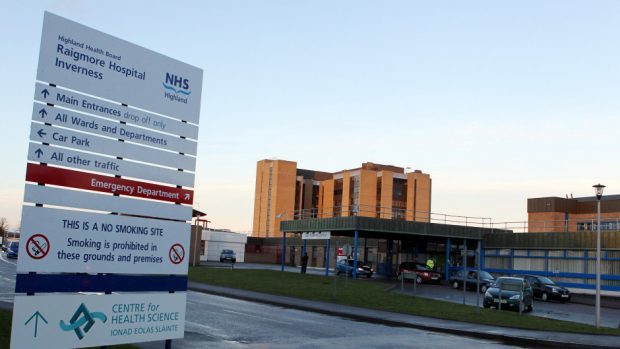A senior Highland doctor has been given a warning after admitting misconduct while carrying out “intimate” examinations on two patients.
However, a hearing found that Dr Devjit Srivastava’s fitness to practice was not impaired.
Dr Srivastava admitted a charge that, while working as a consultant in anaethesia at Raigmore Hospital in Inverness in March 2013, he carried out the examination on a patient.
He did not wear gloves and left the patient “physically flinching” and saying “you’re hurting me, please stop, you’re not in the right place” or words to that effect.
The Medical Practitioners Tribunal Service found that he did not offer the patient a chaperone or adequately communicate his purpose.
He also admitted performing another “intimate examination” on a second patient in May 2013, where he failed to take a full history of the patient, did not wear gloves and did not communicate the purpose of the exam.
During the hearing, a solicitor representing the General Medical Council said that Dr Srivasata had shown “flagrant disregard” for his patients’ dignity in failing to offer them a chaperone.
She added that the doctor’s conduct would be considered “deplorable” by fellow practitioners.
Dr Srivasata’s representative said that the consultant accepted that his behaviour “fell seriously below” the expected standards.
However, he argued that, while he showed the patients “a lack of dignity and respect”, he did not fail the duty of providing “good clinical care”.
In their findings, the MPTS panel found that Dr Srivastava’s actions “did amount to misconduct and that this misconduct was serious”.
The panel also considered a statement provided by the doctor which said that, since the examinations in 2013, he had been subject to a condition requiring that all female examinations be chaperoned.
Dr Srivastava said: “This mandatory regime has been a useful discipline.
“It has reminded me of the importance not only of chaperones. but also of the need to keep patients fully informed and obtain their understanding and consent.”
The panel also heard references from senior staff at the health board who described Dr Srivastava as “a great asset to NHS Highland”.
The panel found that his behaviour was remediable as there has been no further instances since 2013 of failings.
They determined that Dr Srivastava’s “misconduct does not amount to current impairment”.
